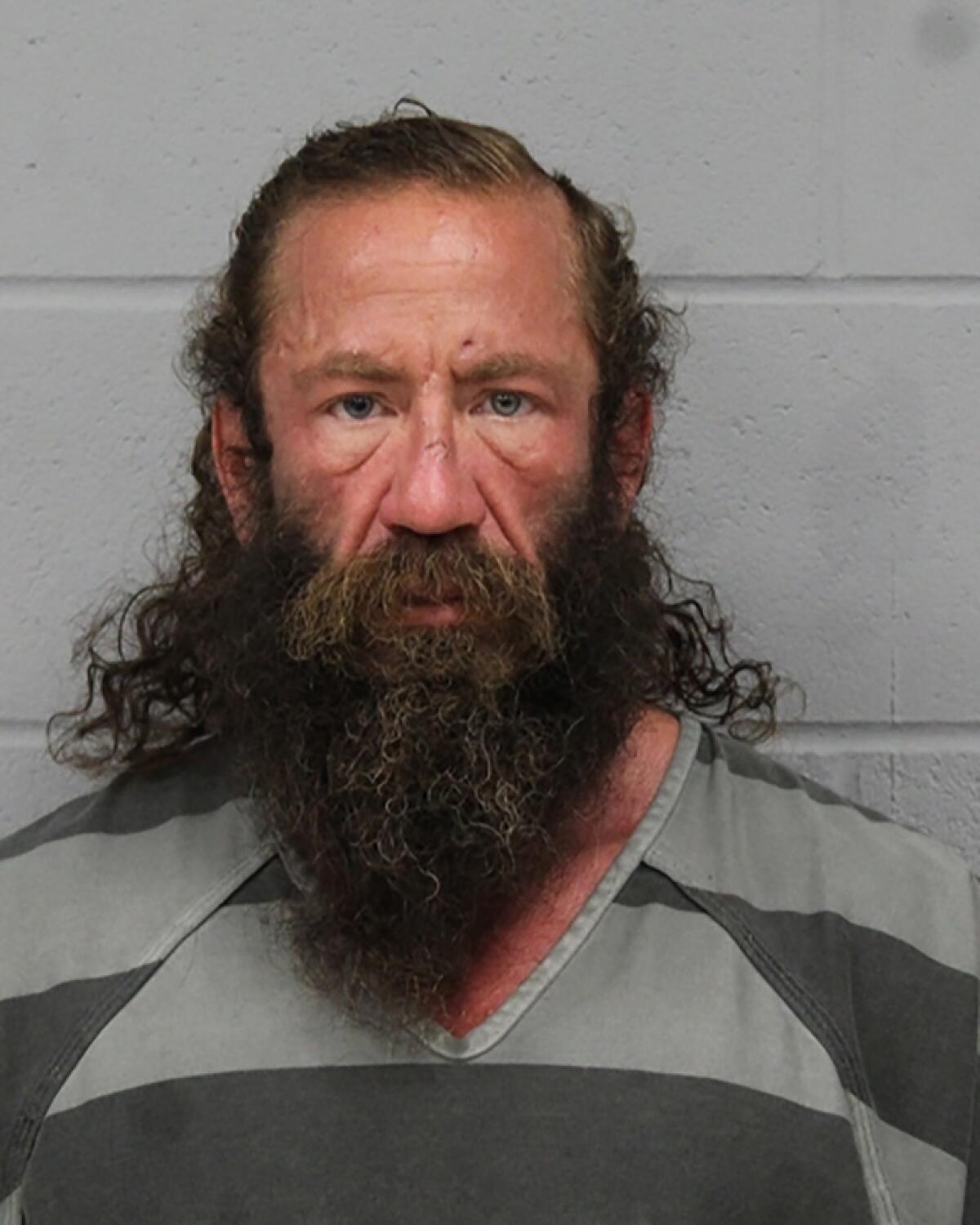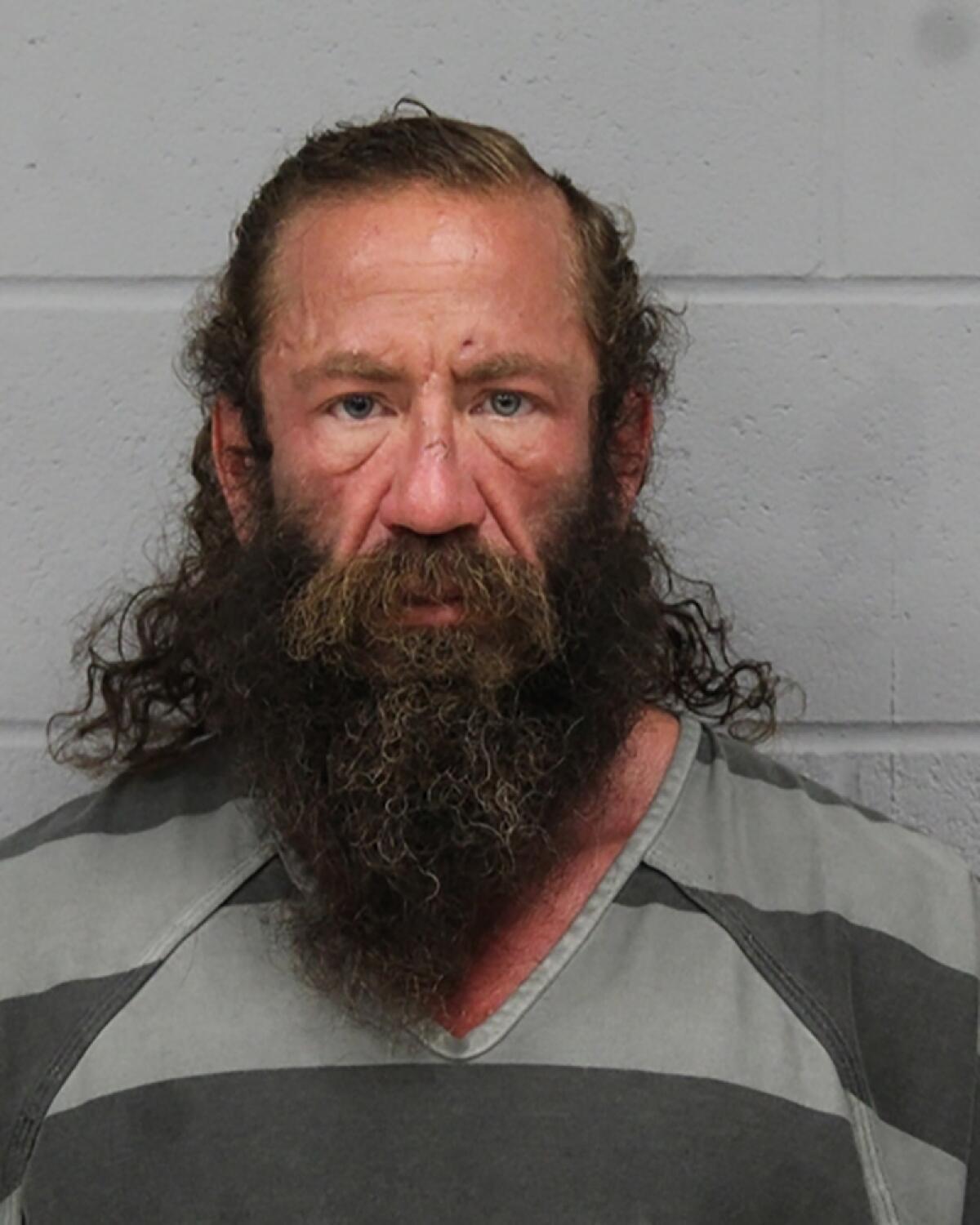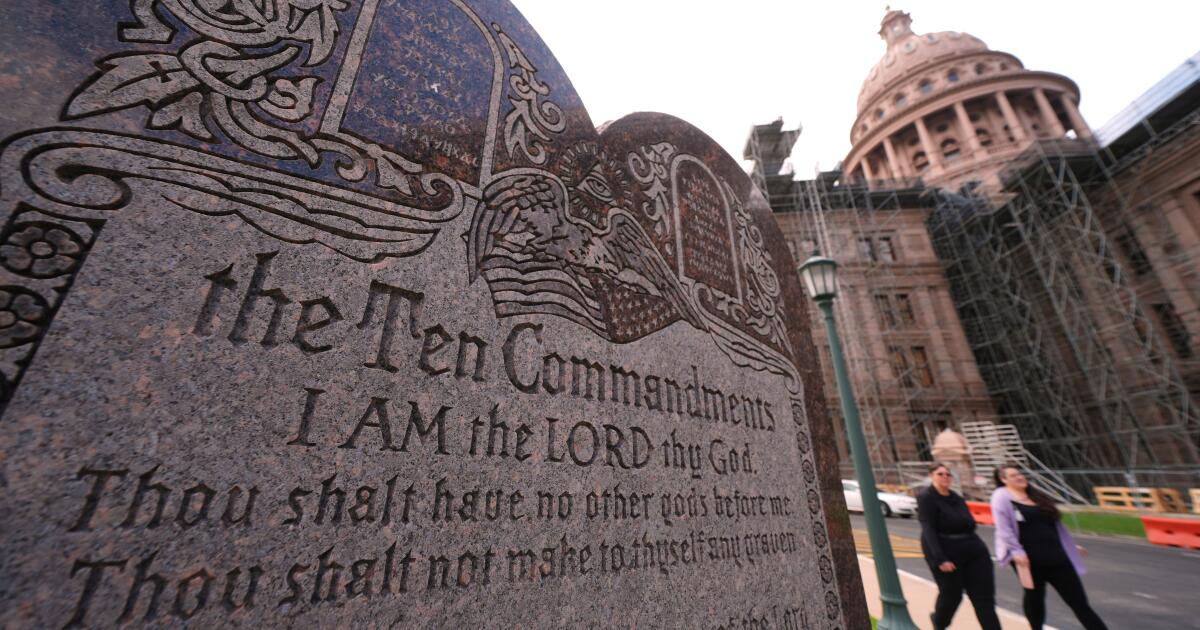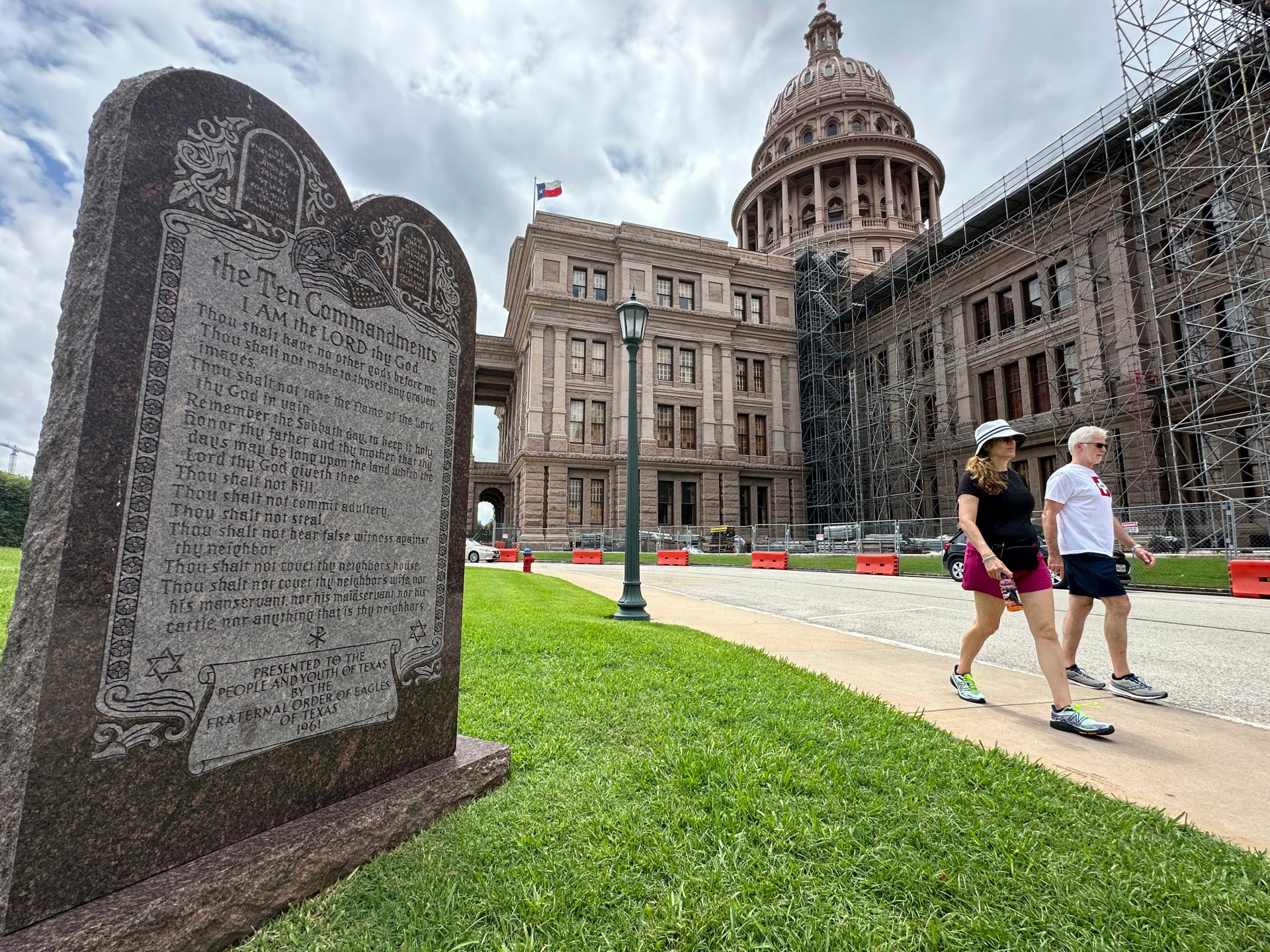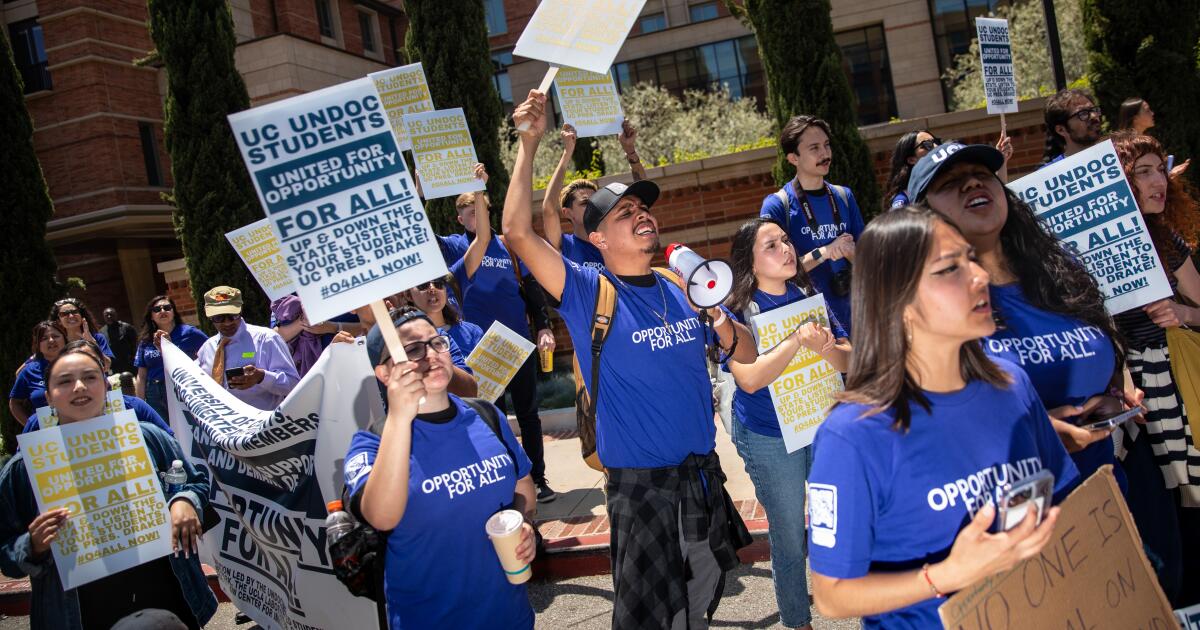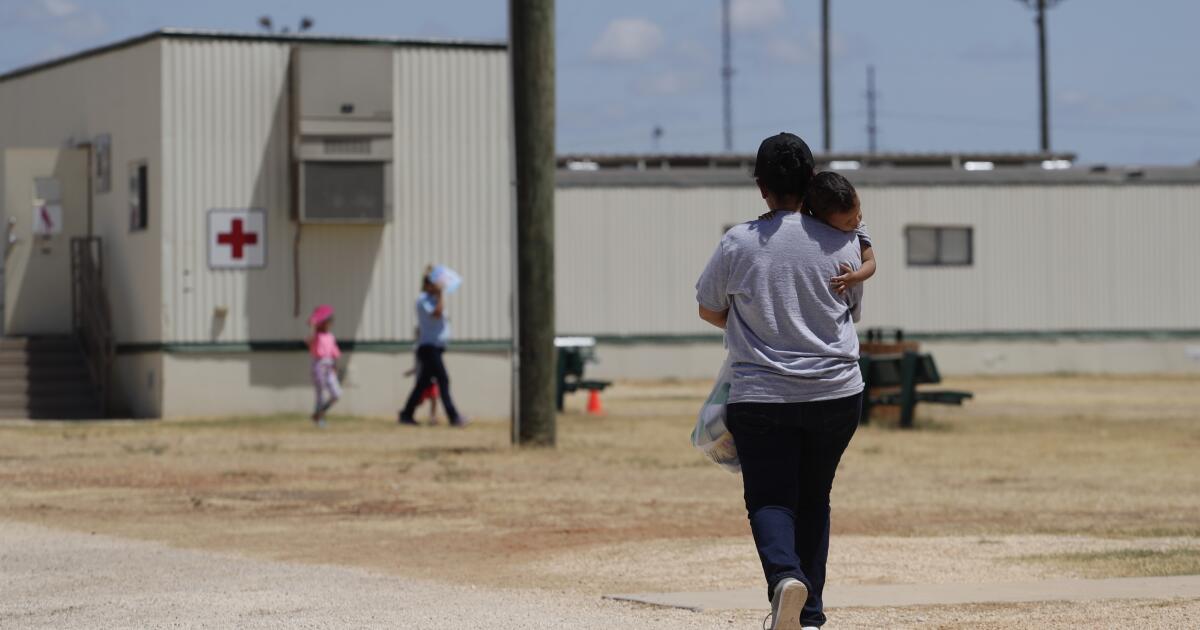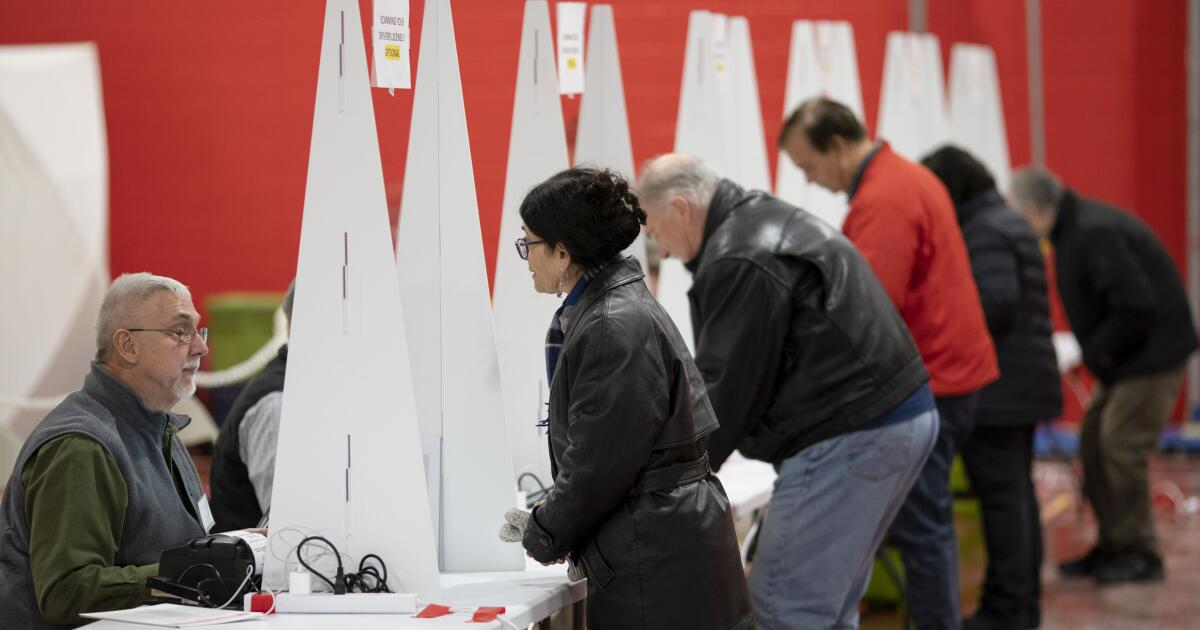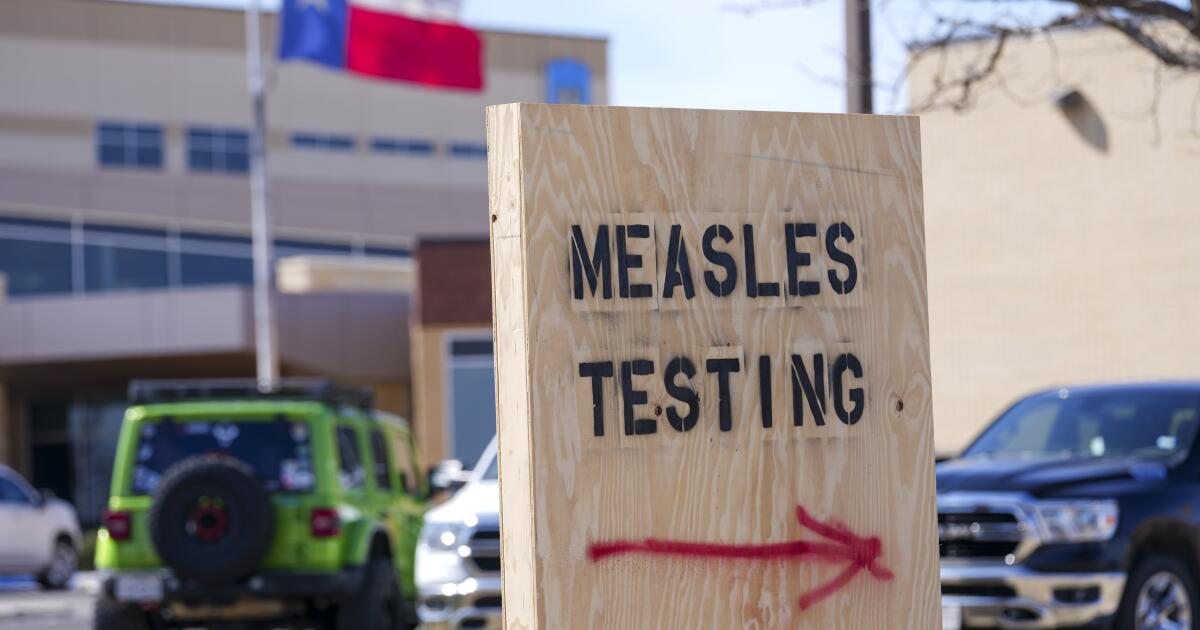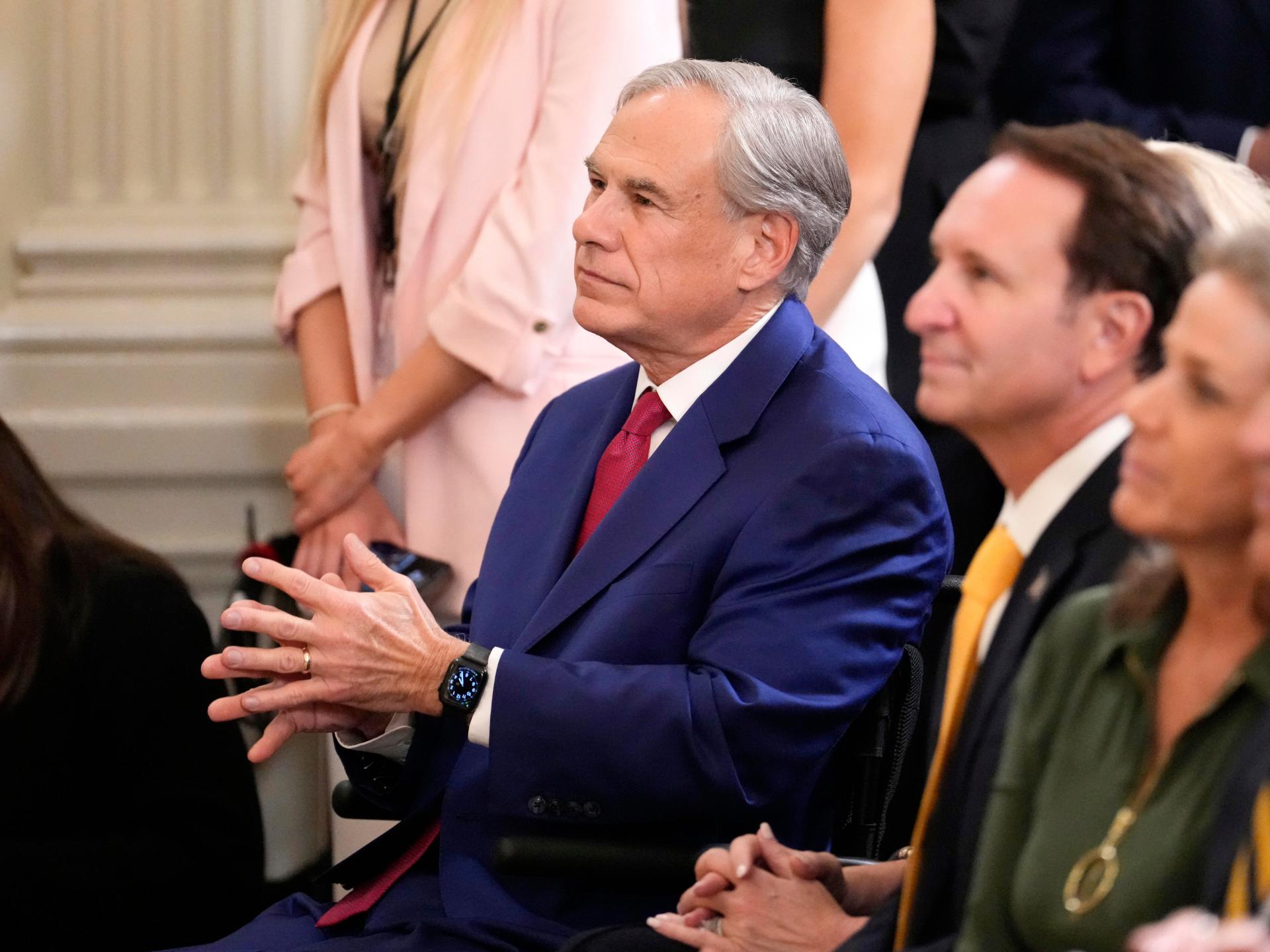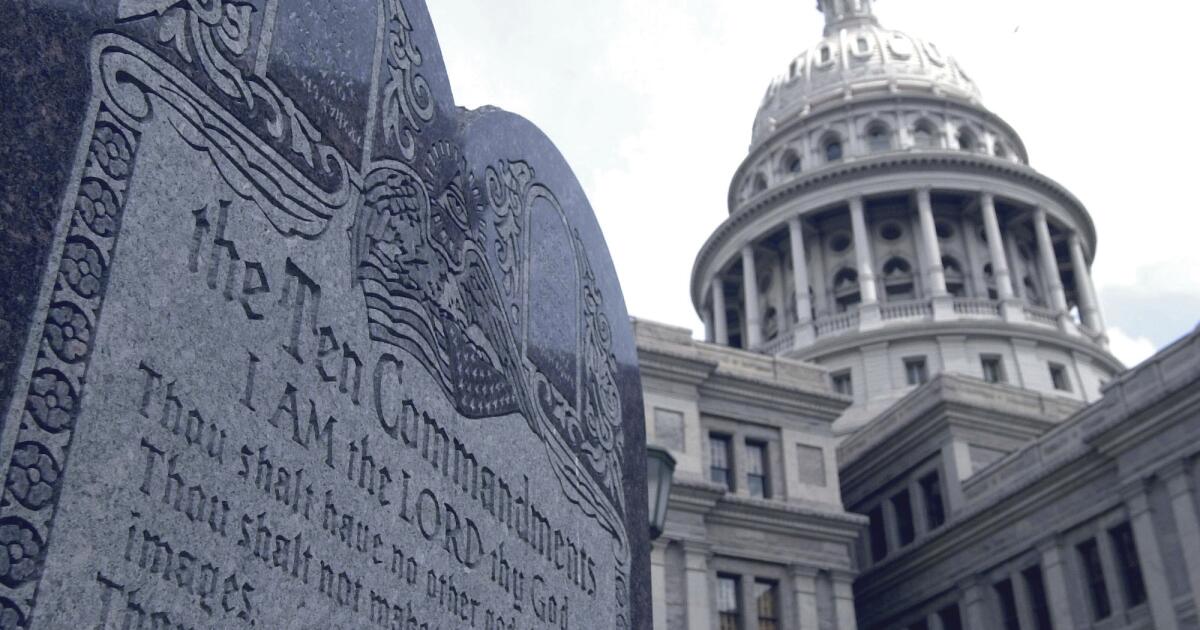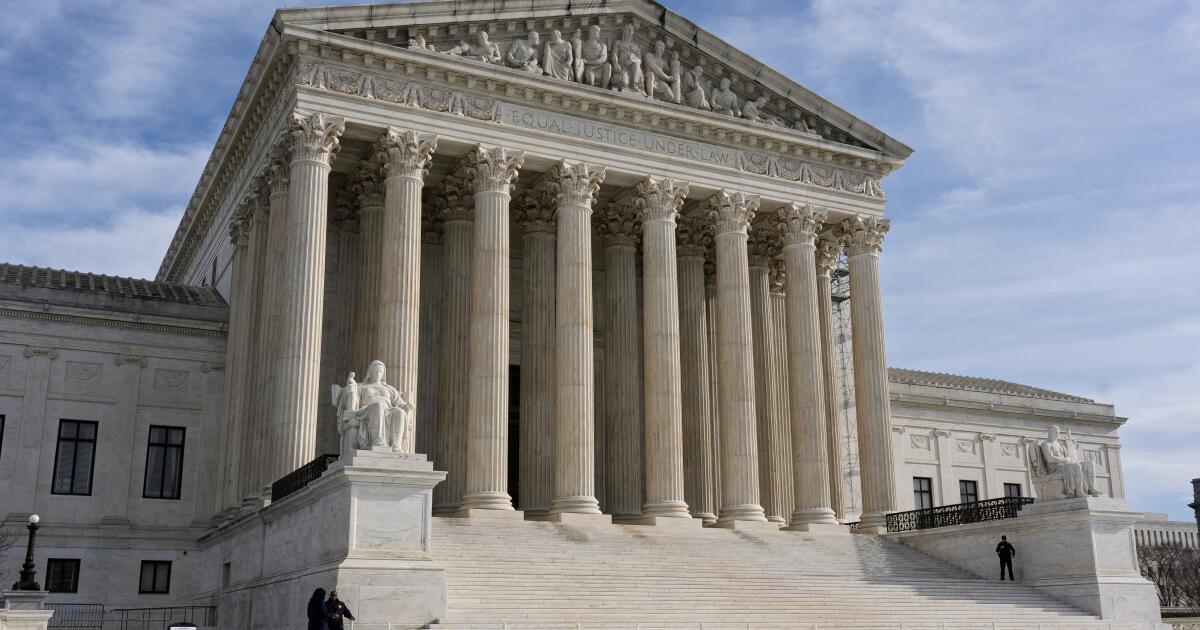Adrian Quesada steps into his star power in new LP ‘Boleros Psicodélicos II’
Speaking with musician and producer Adrian Quesada elicits a calming effect, as if a salve has been applied to the people conversing with him. His voice moves and bounces with intrigue and interest, but never catapults itself upward in decibels.
The soothing and entrancing qualities of his disposition mirror that of his latest album, “Boleros Psicodélicos II,” a 12-track sonic field trip through Quesada’s Latin American influences — and a testament to teamwork — that dropped on Friday.
It shouldn’t come as a surprise that the mellow Austin-based musician prefers to kick it in the background, fancying himself more of an Izzy Stradlin than a Slash — despite having his name splashed across his imminent record.
“I always consider myself more of a producer than an artist. Being a solo artist is a very recent thing for me,” Quesada told The Times on a recent sunny day by Echo Park Lake. “It’s really raw and kind of a weird thing for me because it’s not my style to be in the forefront. I just like to make the music. I try to move in silence.”
He managed to maneuver the music industry by flying under the radar up until a few years ago by playing in large ensembles. His former band, Grupo Fantasma, had 10 members; his mid-2000s Latin-funk group Brownout was also a dectet; and his Grammy-winning group, Black Pumas, had seven (sometimes eight) members. While he obscured himself physically, his musicianship and production skill always stood out.
Grupo Fantasma’s “El Existential” won a Grammy for Latin rock or alternative album in 2011. Black Pumas were nominated in the new artist category in 2020, then received three more Grammy nods in 2021 — which included record of the year for the track “Colors” and album of the year for the group’s eponymous album. Black Pumas also nabbed two Grammy nominations in 2022 and another one in 2024.
Quesada embarked on his journey as a solo artist with “Boleros Psicodélicos” — the spiritual precursor to his latest album. It featured covers of boleros from across Latin America, as well as original material, with Quesada enlisting artists such as iLe from Calle 13, Mireya Ramos and Gaby Moreno to lend their voices to the project.
The Times called that 2022 album a “tropical mystery-thriller of a record,” imbued with a “crispy, 1960s psych-rock feel [that] … sets the scene for Latin indie’s best and brightest vocalists to truly sparkle.”
“Boleros II” finds Quesada as aurally slick as ever as he tackles the oft-covered romantic Spanish standard “Cuatro Vidas,” plus Los Pasteles Verdes’ “Hoy Que Llueve” and brand-new tracks — all while integrating his signature three-over-two rhythms.

(James Carbone / For De Los)
Born and raised in the border town of Laredo, Texas, Quesada always felt he was “at the crossroads of a crossroad.”
“It’s not quite Mexico, but it’s not quite Texas and it’s not quite the Rio Grande Valley,” Quesada said. “Laredo is completely bilingual, everybody just speaks Spanglish. I didn’t have a distinction between English and Spanish and it was a couple of different cultures together. Now with music, people seem really caught up on genres — this is in Spanish and this is in English. And none of that really fazes me.”
Like most American kids of the ’80s and ’90s, Quesada’s biggest source of musical consumption came from binge-watching MTV, with a sprinkling of recommendations from friends.
“I was home a lot by myself and I would just watch MTV, so I used to watch all the shows: ‘Yo! MTV Raps,’ ‘Headbangers Ball,’ ‘Alternative Nation’ and ‘120 Minutes,’” he said. “That was where I was discovering stuff. And then friends had an older cousin who used to make me cool tapes, and other friends would pass around hip-hop tapes.”
Quesada says he finally became curious about what a music producer does after listening to N.W.A in his teen years. He recalls sitting in front of his Casio keyboard with its pre-programmed drum machine and trying to dissect the intricacies of what producer Dr. Dre was able to craft.
Revealing the arbitrary nature of self-imposed borders — of both countries and genres — is one of Quesada’s artistic goals, opting to build bridges and not walls.
“There’s a thing called the narcissism of small differences, which means we can’t get over our differences that we have with other people that are so minuscule, we have to differentiate ourselves,” Quesada said. “And I’m starting to finally feel a responsibility for showing people nothing is that different. Latin rhythms are not that different from soul rhythms, or funk rhythms, or rock ’n’ roll. That’s probably the biggest [impact] my upbringing has on me.”
Despite his deeply Texas roots and sensibilities, Quesada’s “Boleros II” and his recent life experiences have been immensely L.A.-coded.
Quesada was nominated for original song at this year’s 97th annual Academy Awards, for writing the track “Like A Bird” with Abraham Alexander, as featured in the Colman Domingo-led film “Sing Sing.”
“I had fun with that. I was catching key things in the movie, seeing what they did visually, and what I could do musically on the song,” he said of working on the piece.
That process led to him spending more time in L.A. than anticipated. “The Oscars kind of flipped my world upside down,” he said. “I had to be here a lot between the nomination being announced and Oscars night. That was the first three months of the year.”
Carrying the L.A. momentum from the Academy Awards to “Boleros II” is the notable presence of Angelenos on the album, including Hawthorne’s perpetual sadboi Cuco, El Monte native Angélica Garcia and Carson soul singer Trish Toledo. (L.A. producer Alex Goose may not be Latino, but his intrepid hip-hop production chops blend seamlessly with Quesada’s eclectic sensibilities.)
“L.A.’s such a predominant Latino town,” said Quesada. “All the references I was showing Angelica, Trish and Cuco, they were very familiar with all that stuff. It came really natural to them. So I do think there’s something with L.A. where they get it culturally here. I leaned on a lot of L.A. artists.”
Quesada is currently touring as part of Trio Asesino, in support of Hermanos Gutiérrez on their U.S. tour. Quesada will perform songs from “Boleros II” at L.A.’s Grand Park on Aug. 2, as part of a free summer concert series by Grand Performances. (Editor’s note: De Los will be a co-presenter of Quesada’s performance.)
“‘Sing Sing’ was about rehabilitation through the arts and how it can change people’s lives, not just reaching people as a fan, but also reaching more kids who can take up art,” Quesada said of the mission of the Grand Performances series. “I believe in the power of art. Everything from a song inspiring a whole movement to a song just making you smile for the day, that’s the power of music.”

